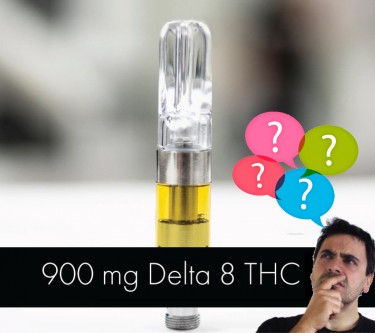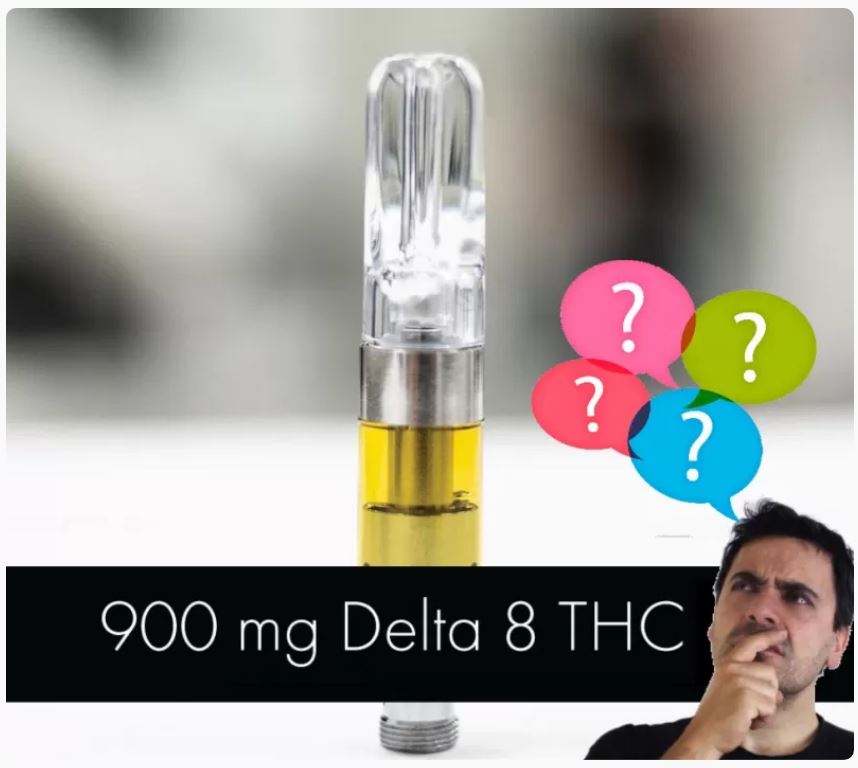Is Delta-8 Tetrahydrocannabinol the new THC and how can it be legal?
What is Delta-8 THC?

Cannabis is a special plant used in different industries for its medical and recreational effects. These effects induced by cannabis are due to the large photochemical molecules present in the matrix of the plant. The common phytochemical molecules in the cannabis plant are cannabinoids, terpenes, and flavonoids. There are over 100 cannabinoids in the cannabis plant matrix. These cannabinoids work through the cannabinoid receptors in the endocannabinoid system of the body to give physical and mental effects. This phenomenon serves as the basis for all medical and recreational effects cannabis users enjoy from cannabis. It should be noted that THC and CBD are the two most important and popular cannabinoids. However, with the increase in the works of research being conducted by experts more cannabinoids are being discovered and a lot is being unearthed about established cannabinoids like THC and CBD.
A closer look at Delta-8-THC
Delta-9-tetrahydrocannabinol (THC) is the popular cannabinoid that is commonly called THC and causes the intoxicating feeling enjoyed by recreational cannabis users. It should be noted that there are other analogs of this cannabinoid, and chief among them is Delta-8- THC. Delta-8-THC is different from delta-9-THC and this accounts for the differences in the physical and mental effects induced by both compounds. Delta-8-THC has a double bond on the 8th carbon while delta-9 has a double bond on the 9th carbon. This difference in the orientation of the double bond makes delta-8-THC completely different from delta-9-THC though there still exists some similarities.
The National Cancer Institute in its definition of delta-8-THC defined it as an analog of tetrahydrocannabinol (THC) with antiemetic, anxiolytic, appetite-stimulating, analgesic, and neuroprotective property. Further clarification on the compound shows that it binds to CB1 and CB2 cannabinoid receptors located in the central nervous system. These cannabinoid receptors are G-protein coupled receptors. Upon binding to these receptors in the brain, delta-8-THC also causes a euphoric feeling though not as potent as delta-9-THC.
Differences between delta-8-THC and delta-9-THC
The change in the position of the double bond differentiates delta-9-THC from delta-8-THC. Here are some of the major effects of this difference.
Low psychotropic potency of delta-8-THC
Delta-8-THC is less potent as a psychotropic agent compared to delta-9-THC. This means that delta-8-THC can give a euphoric high without the unwanted side effects like paranoia and fear that coke with a high concentration of delta-9-THC. The implication of this difference also takes effect among the medicinal benefits of delta-8-THC too as it has less sedative and less prone to causing anxiety.
Efficacy and physics stability
A reduced amount of delta-8-THC is available naturally as it exists in a combined state in the matrix of cannabinoids in the cannabis plant. However, when isolated, delta-8-THC is more stable than delta-9-THC. This increased stability of delta-8-THC affects its efficacy and makes it more shelf-stable. Improved stability makes delta-8-THC a better option for pharmaceutical companies that make prescription drugs. This makes delta-8-THC very valuable to the medical and recreational arms of the cannabis industry.
The medical benefits of delta-8-THC
The definition of the National Cancer Institute already gives a good indication of the wide range of medical benefits of delta-8-THC. The cannabinoid has a wide range of mental health benefits which is synonymous with some of the activity of CBD. Delta-8-THC has a neuroprotective property that makes it useful for those suffering from cancer and going through chemotherapy.
Dr. Raphael Mechoulam partnered with Shaare Zedek Hospital and Hebrew University in Jerusalem to carry out a study to show the neuroprotective and analgesic property of delta-8-THC. The study involved giving delta-8-THC to 8 children between the age of 3 to 13 suffering from hematologic cancer. The children used for this study had initially being treated with prescription drugs and chemotherapy for months before the study was conducted. The children were given measured doses of delta-8-THC two hours before their chemotherapy session. This was then changed to 6 hours intervals every 24 hours. The observation from the children was fewer side effects with the drugs and no evidence of vomiting due to anti-nausea activity of delta-8-THC.
